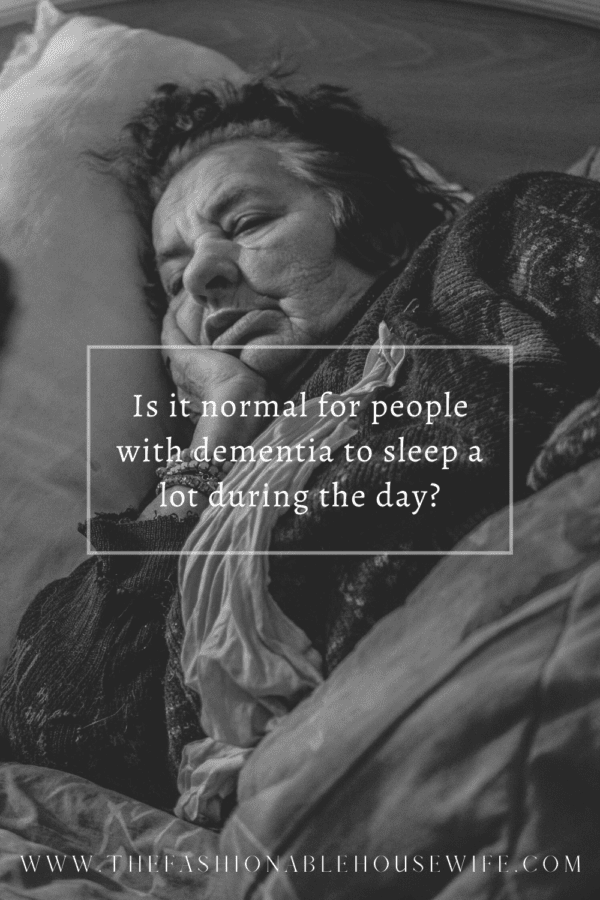
Alzheimer’s is common dementia found in the elderly. In fact, according to the latest estimates, around 6 million Americans have Alzheimer’s, with the majority of them being 65 or older. People suffering from this are often found napping, both during the day and the night. It is prevalent in people with later stages of dementia. But before going into the topic, let’s first understand what is Alzheimers?
What exactly is Alzheimer’s?
Alzheimer’s is a brain disorder that affects the memory, thinking, and behavior of the individual suffering from this disease. It is a progressive condition that grows over time and develops gradually over the years. In fact, the early onset of Alzheimer’s occurs between 30 and 60. In this dementia, the symptoms would eventually grow, making it nearly impossible for the patient even to carry out some of the most basic tasks.
Now back to the topic at hand.
Yes, it is pretty standard for patients in the later stages of dementia to spend most of their time sleeping. The reason for this is the extensive damage to the brain that is quite prevalent in the later stages of Alzheimer’s. The patient becomes weaker and frailer over time, requiring more sleep for the body to function. In addition, several medications might contribute to the condition and the increase in the patient’s sleepiness. Some antipsychotics, antidepressants, and antihistamines have shown an effect on the patient’s sleeping cycle.
What you should do if the person with dementia sleeps more?
Even if this seems like a natural progression of the disease, it does not mean there could not other causes for it. If excessive sleeping has started suddenly, there is likely another cause behind it. It is recommended that one reach out to GP to rule out any infection or condition that might affect a person’s sleep. It is also advisable that one also review the patient’s medication for the same side effects.
There are also some other causes that might be behind the excessive sleeping of the dementia patient, like less exposure to sunlight, a patient suffering from physical and mental exhaustion at the end of the day, a poor sleeping environment, an incorrect diet with excessive stimulants, and finally a chronic pain that the patient has been suffering from.
Here are some ways you can help the person suffering from dementia and improper sleeping –
- Create a soothing environment: Make sure that the room is dark, quiet, and cool, which would promote good sleep.
- Encourage physical activity during the daytime: Going on regularly scheduled walks or any other physical activity in the early morning would encourage better sleep. Do not wait till the evening as it may increase agitation in the patient.
- Get some sunlight: Sunlight does an excellent job of regulating the sleep cycle. Another reason morning walks are crucial. Just remember to dim the lights in the evening.
- Develop a sleep schedule: This contributes to the ultimate aim of the whole exercise, to help the patient go to sleep at night. By creating a plan, you can assist the brain with the sleeping process. You can also play soothing music, which would also help with sleep.
- Limit daytime naps: Another reason for irregular sleep is excessive sleep during the day, with the body having pent-up energy to release, making it impossible to sleep at night.
- No stimulants: Coffee, alcohol or any nicotine substance must be restricted.
But in the end, if there is no unique cause for the onset of excessive sleeping and the progression is along the expected lines, you can only make them comfortable, mainly if there is no negative impact than just excessive sleep.

Why does dementia affect one’s sleep time?
It is pretty common for patients with dementia to have problems due to their sleep. These can include –
- Sleeping during the day and staying awake at night in a restless state
- Disorientation in the dark
- Waking up often at irregular times and then staying awake for an extended period during the night
- Unaware of the time and getting up early in the morning hours
- Unable to tell the difference between the nighttime and daytime
There is no conclusive study that could explain why dementia has an impact on an individual’s sleeping patterns. But it is widely accepted that it is something to do with their brain’s not working properly, which is a common occurrence in the case of dementia. In such situations, the only thing you must do is to ensure that the patient has a quality sleep at nighttime.



